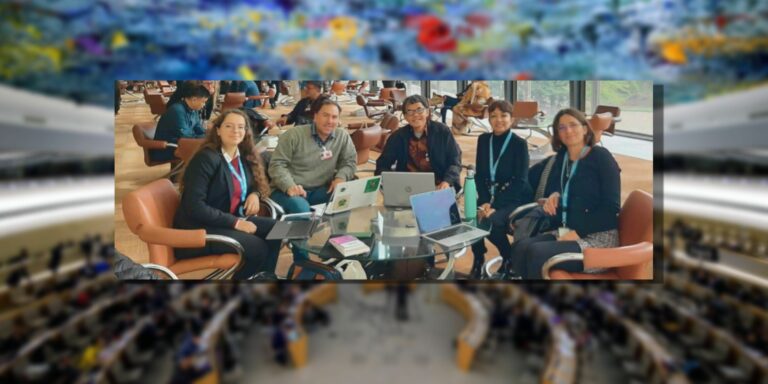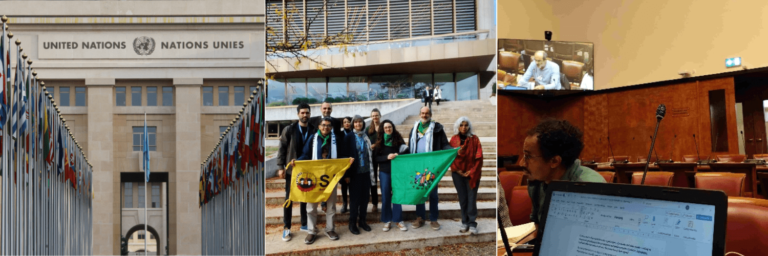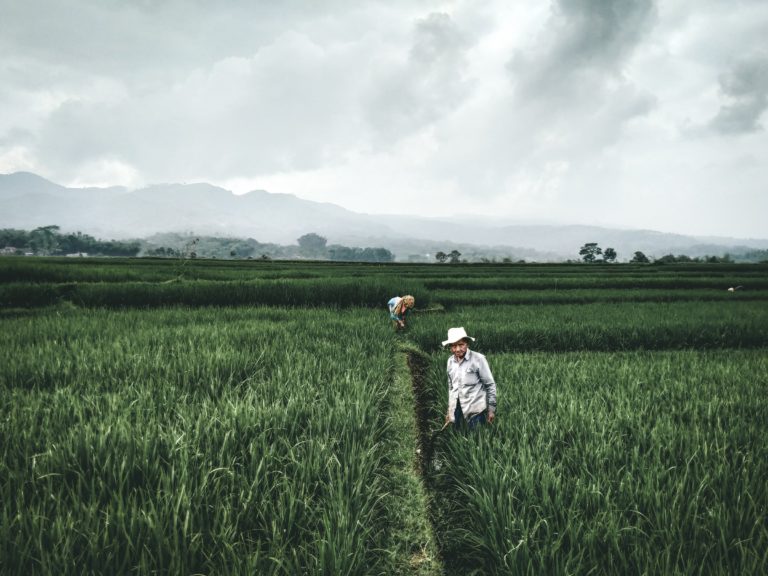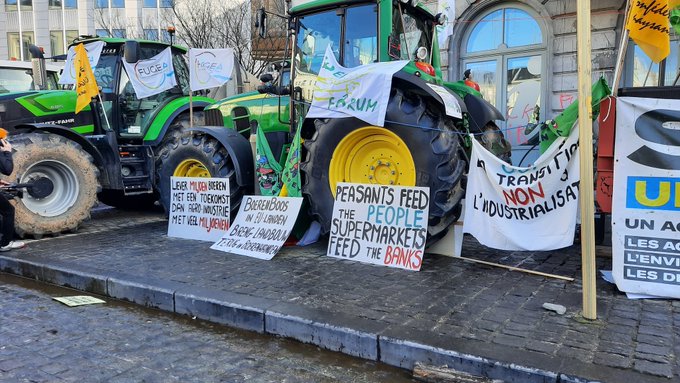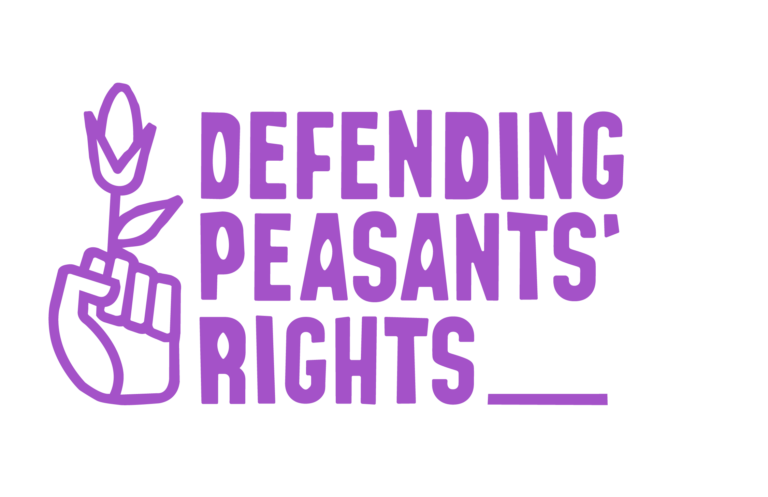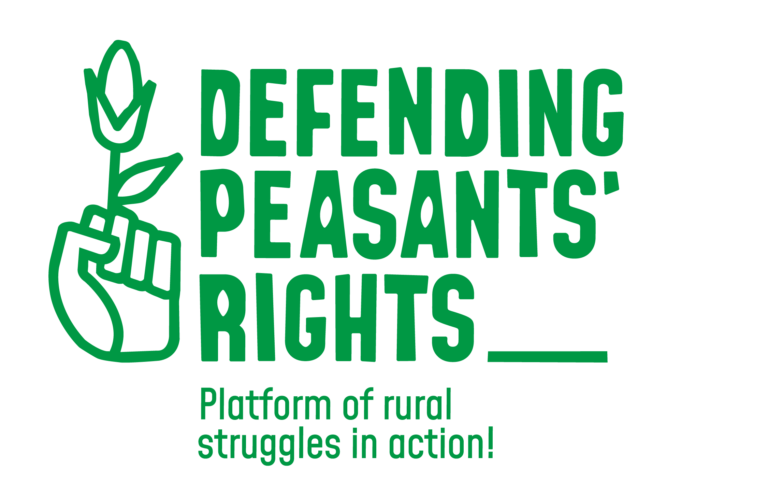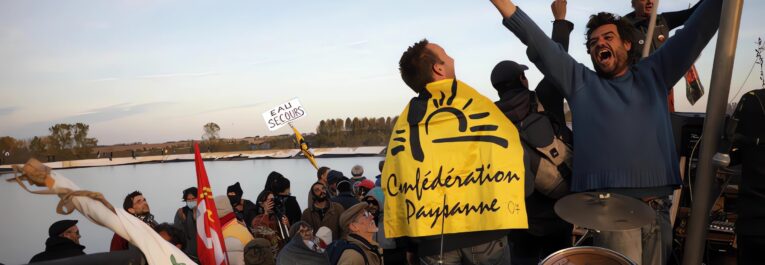Peasant rights at the top of the UN agenda
This article was first published on La Via Campesina and CETIM website on October 3rd 2022.
In the framework of the 51st session of the UN Human Rights Council (HRC), a delegation of La Via Campesina (LVC), supported by its historical allies CETIM and FIAN International, met in Geneva to continue the advocacy work in favor of the promotion of the UN Declaration on the Rights of Peasants and Other People Working in Rural Areas (UNDROP).
It is necessary to remember that the multidimensional crises facing our societies, and in particular the food crisis, represents a systemic and not a conjunctural challenge, so that concrete solutions capable of generating substantive and structural changes are necessary. In this sense, the UNDROP, if properly implemented in line with the demands of the peasant movement, constitutes an important tool : a legal and political lever at the service of peasant struggles.
It is precisely for this reason that LVC and its allies, following the adoption of the UNDROP in 2018, are mobilizing at all levels advocating for the implementation of this instrument, so that the rights enshrined can become a reality for communities on the ground. Mobilization is also taking place at the level of international multilateral spaces, where LVC demands in particular the creation of a monitoring mechanism for peasants’ rights, in the form of a Special Procedure of the UN Human Rights Council.
On Tuesday, September 27, 2022, Zainal Arifin Fuat, member of the international coordination committee of La Via Campesina and of the peasant union Serikat Petani Indonesia (SPI), made an intervention in the plenary session during the Panel on the right to work in relation to the current climate crisis.
The LVC representative recalled how the current climate crisis is increasingly affecting rural areas and that the increase of climate disasters seriously affects the living conditions and the right to work of peasants.
In addition, Zainal Fuat emphasized how the peasant movement has always been able to build food systems that are resilient to climatic phenomena, as opposed to crops generated by industrial agriculture.
Articles 13 (right to work) and 22 (social security) of the UNDROP establish obligations for States to adopt appropriate measures to promote sustainable food systems, guaranteeing the right to work and social security for peasants in case of climate disasters.
On Thursday, September 29, 2022, Diego Montón, from the National Indigenous Peasant Movement (MNCI Somos Tierra – Argentina) and the LVC – Latin American Coordinating Committee of Rural Organizations (CLOC), intervened in the debate on UN bodies and mechanisms.
The peasant representative affirmed that despite the adoption of the UNDROP, no significant progress has been made, but on the contrary, violations have increased due to the climate crisis, the harmful activities of agribusiness and food speculation.
Faced with these challenges, Diego Monton called for united efforts to advance the implementation of the UNDROP, in particular through the creation of a peasant rights monitoring mechanism within the UN human rights system1.
Diego Monton concluded his intervention by saying that “it is our hope that we can walk this path together so that the world’s peasants can fully exercise their rights and food security and sovereignty become a global reality”.
It is worth noting that on September 20, 2022, always in the framework of the HRC session, the Permanent Mission of the Plurinational State of Bolivia, together with Cuba and South Africa, made an intervention at the plenary meeting of the HRC, where they recognized the importance of the UNDROP as a historic step in the protection of the rights of this population living in a highly vulnerable situation in the context of the current crises. The Ambassador of the Plurinational State of Bolivia emphasized that it is necessary to redouble efforts to continue socializing and implementing peasant rights through constructive dialogue and cooperation between countries and rights holders.
In this sense, LVC and its allies will continue to collaborate constructively with these countries and all others in order to generate synergies and broad support for all efforts to promote and implement the UNDROP all the the world.
GLOBALIZE THE STRUGGLE, GLOBALIZE HOPE!
PEASANT RIGHTS NOW!
- Once achieved, the follow-up mechanism will have different functions as follows: i) be a forum for discussion and cooperation between countries, for exchange of good practices, a space of coordination of ideas and proposals of implementation across countries. At the same time, the space will allow direct dialogue and articulation between countries’ representatives, the rights holders (peasants and other rural communities) and other civil society organizations working on the promotion of the UNDROP; ii) contribute to the elaboration of reports to follow-up the situation of peasants rights in different countries; iii) promote the elaboration of policies and national legislation’s analysis with regard to the protection of the rights peasants, in accordance with the content of the Declaration; and iv) elaborate concrete recommendations for countries on the way to better implement peasants rights.

